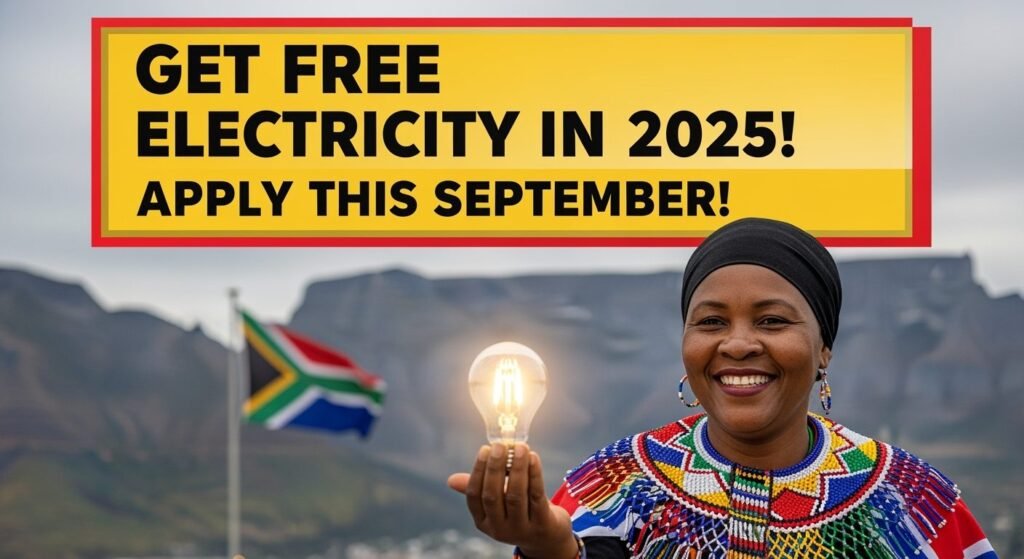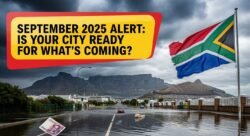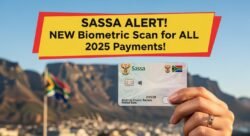Free Basic Electricity: I’m excited to share some important news that could help many South African households with their electricity costs. This September marks the beginning of the application period for Free Basic Electricity (FBE) for the 2025 fiscal year. If you’re struggling with rising energy costs, this government program might be exactly what you need. The initiative aims to provide qualifying low-income households with a specified amount of free electricity each month, helping to alleviate some of the financial burden many South Africans face. Have you been wondering if you might qualify for this assistance?

What is Free Basic Electricity?
Free Basic Electricity is a government subsidy program designed to ensure that vulnerable South African households have access to a basic amount of electricity at no cost. The program typically provides qualifying households with 50-60 kWh of free electricity monthly, which is enough to cover basic lighting, media access, and some cooking needs. This initiative forms part of South Africa’s broader social welfare system aimed at addressing energy poverty and ensuring that even the most economically disadvantaged citizens have access to essential services. The Free Basic Electricity 2025 program continues this important tradition while adapting to current economic conditions and energy sector challenges that many South Africans are facing.
Why You Should Apply This September
Applying early for Free Basic Electricity 2025 gives you the best chance of being approved before the new fiscal year begins. With rising electricity costs and ongoing economic pressures, securing this benefit could make a significant difference to your household budget. The application process has been streamlined this year, making it easier for eligible South Africans to apply and receive this crucial support. Additionally, early applicants typically face shorter processing times and can plan their household budgets with greater certainty. Remember that funds for these programs are limited, so waiting until the last minute might mean missing out on this valuable assistance that could help keep your lights on.
How to Apply for Free Basic Electricity
The application process for Free Basic Electricity 2025 has been designed to be as accessible as possible. You can apply through your local municipality offices, where dedicated staff will guide you through the process. Alternatively, many municipalities now offer online application options through their official websites. To complete your application, you’ll need to provide proof of residence, income verification documents, and your ID. The specific income thresholds vary by municipality, but generally, households earning below a certain amount qualify for the program. Municipal officials will assess your application based on the national indigent policy guidelines and local regulations to determine your eligibility for this essential service support.
- Visit your local municipal office or check their official website
- Prepare your ID document, proof of residence, and income verification
- Complete the application form accurately and thoroughly
- Submit all required documentation before the deadline
When Will Benefits Begin?
If your application for Free Basic Electricity 2025 is approved, you can expect to start receiving benefits at the beginning of the new fiscal year. The exact timing may vary depending on your municipality and when your application is processed, but most successful applicants will begin receiving their allocation in April 2025. It’s important to note that the approval process typically takes 4-6 weeks, which is why applying in September 2024 is recommended. Once approved, the free electricity allocation will automatically be applied to your prepaid meter or deducted from your monthly bill if you’re on a postpaid system. The program runs for the full fiscal year, providing consistent support to help manage your household energy needs.
Real Success Story
Last year, the Mbatha family from Soweto applied early for the Free Basic Electricity program and experienced significant relief in their household expenses. Mrs. Mbatha, a single mother of three, reported saving approximately R200 monthly on electricity costs, which she redirected to educational expenses for her children. “The free electricity allocation meant we never had to study or eat in the dark,” she explained. This practical example demonstrates how the program can make a meaningful difference in the lives of ordinary South Africans when they take advantage of the application period in September.





